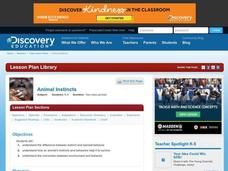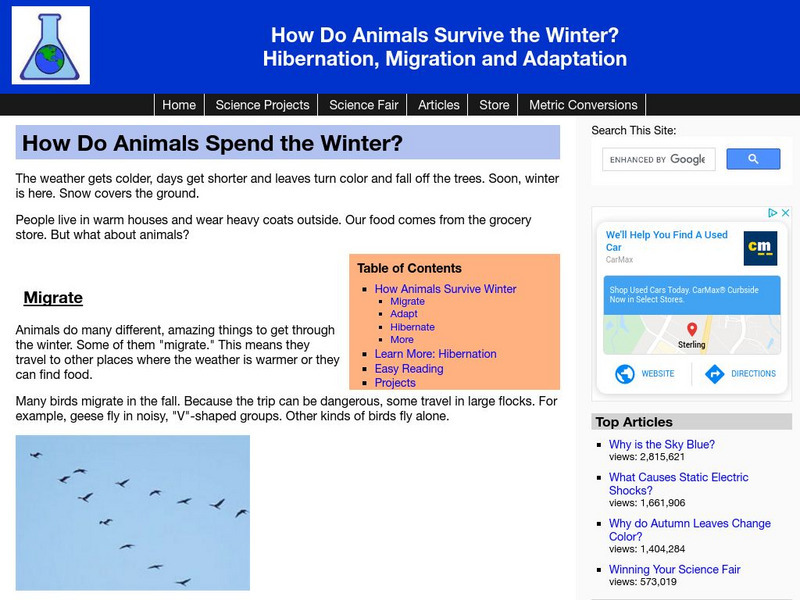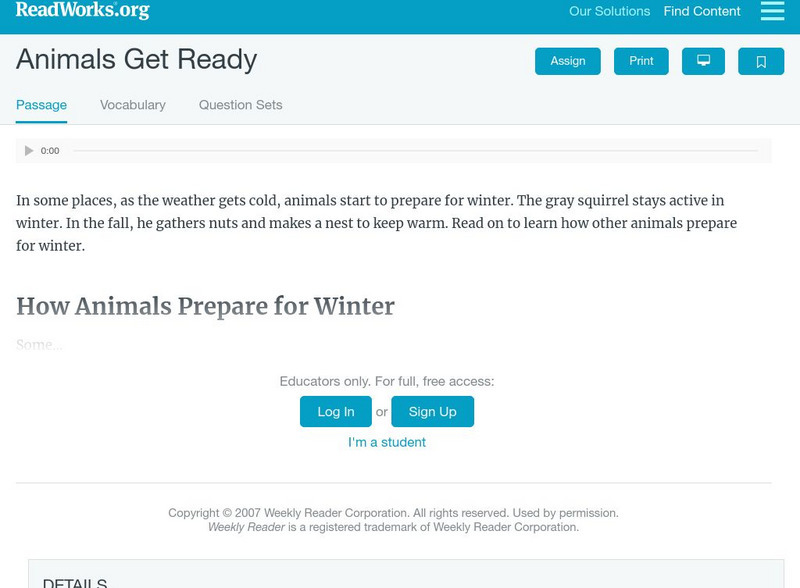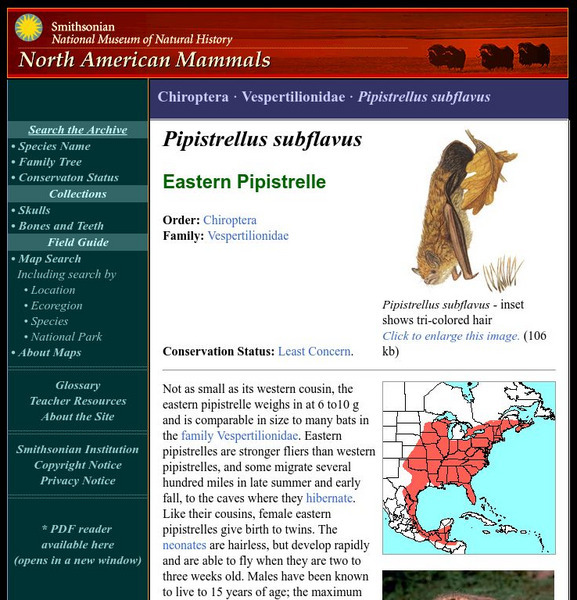Curated OER
Make a Cast of a Tyrannosaurus rex Fossil
Second graders examine the formation of fossils and list the different types. They make cast model of a dinosaur fossil. They write about conditions that are necessary for fossils to form and create a model of a buried fossil.
Curated OER
Spy on a Spider
Students view slides or live specimens to name and describe the distinguishing features of groups of arthropods, especially spiders and insects. They complete worksheets, observe webs and then search for and record where spiders can be...
Curated OER
Winer Survival
Students study how animals need water, food, shelter, and space to survive. They also study what animals need to survive in the winter. They play the part of animals and winter "threats" in a game of tag to reinforce concepts.
Curated OER
Animal Instincts
Students compare animal adaptations to human behavior. In this science lesson, students discuss animal instincts vs. learned behavior. Options for student writing, drawing and research are incorporated into this lesson plan
Utah Education Network
Uen: How Animals Prepare for Winter
Learn about animals that migrate or hibernate.
Environmental Education for Kids
Eek!: Under in the Mud Read Aloud | Story Edventures
Under in the Mud by Laureanna Raymond-Duvernell takes you into the wintering world of ten Wisconsin animals as you listen to her read the book and talk about the animals in it. Learn about how animals hibernate, migrate, and adapt to...
Utah Education Network
Uen: Plant and Animal Changes
Second graders will learn about animal adaptation, hibernation, and migration.
Science Made Simple
Science Made Simple: How Do Animals Spend the Winter?
Use this site to learn how animals use hibernation, adaptation, and migration to overcome the difficulties of winter.
Read Works
Read Works: Animals Get Ready
[Free Registration/Login Required] An informational text exploring different ways animals prepare for winter. A question sheet is available to help students build skills in reading comprehension.
Utah Education Network
Uen: Science Vocabulary Game
Fourth graders will play a review memory game with Utah's Grade 4 Science Standard V vocabulary words during this lesson plan. Words associated with living things and classifications of living things are included in this lesson plan.
Utah Education Network
Uen: Animal Adaptations
A multitude of activities provide help with understanding animal adaptations.
Read Works
Read Works: Animals Get Ready
[Free Registration/Login Required] Students read about how different types of animals prepare for winter. A question sheet is available to help students build skills in classifying and categorizing.
Other
Contra Costa County Office of Education: Bats: Why Should You Care?
At this site, provided by the Contra Costa County Office of Education, you can get the facts on bats and their environment.
CK-12 Foundation
Ck 12: Life Science: 8.5 Cyclic Behavior
Explore different types of cycles in animal behavior.
Smithsonian Institution
National Museum of Natural History: American Mammals: Eastern Pipistrelle
Not as small as its western cousin, the eastern pipistrelle weighs in at 6 to10 g and is comparable in size to many bats in the family Vespertilionidae. Eastern pipistrelles are stronger fliers than western pipistrelles, and some migrate...











